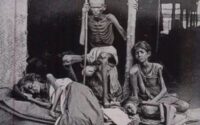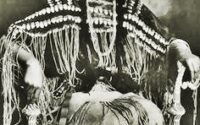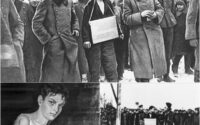THE MYSTERY OF THE “WOMAN ON THE HILLTOP”: CURSE OR ABSOLUTE POWER OF THE 1883 FRONTIER? .m
1883: The American frontier. A name whispered in the woods and small towns of an unnamed valley has become legendary. It is Martha Hale. Her story is not a simple historical tragedy; it is a brazen challenge to the definition of human destiny and limits.
A Cold Morning and an Oath of Revelation
The story begins on a cold March morning—a morning when life and death collided in the same ramshackle cabin. Martha Hale buried her husband as the cries of her son echoed from birth.
Picture this moment: a young woman, standing alone by a freshly dug grave, with no family, no neighbors, only a newborn wrapped in a shawl, and a cabin about to fall apart. The vow she whispered to her newborn child, “You will have more than sorrow, son. I swear it,” was not a consolation, but a declaration of war against a world that had taken everything from her.
This was more than just maternal courage. This was a refusal to accept fate. It was a rare, almost divine event, occurring at the most difficult moment of immigrant life.
HOW DID HALE “WORK THE MIRACLE”?
In 1883, life on the frontier was harsh. Women were expected to be pillars of the spirit, not a workforce. But Martha Hale ripped that script.
She didn’t hire people. She didn’t beg. She taught herself to do everything:
Mending fences like a carpenter.
Caring for livestock like a professional farmer.
Selling milk at night to skeptical travelers.
When a storm ripped the roof off her house, she didn’t seek help from the community. She patched it with her husband’s coat. When her son fell ill, she didn’t pray; she stayed up all night, boiling water and using sheer will to keep him alive. She could fast, but her son never did.
It was this inhuman resilience that created the mystery: How could one woman do all this, alone, without breaking down?
Was it pride or something even more terrifying?
As Martha’s son grew tall and strong, the little valley began to call her “Martha of the Ridge.” The land she worked, the story goes, blossomed again.
But the whispers in town were divided into two camps:
The Admirers: She was a symbol of courage, a living saint.
The Skeptics: She was a proud and cold woman. She never remarried. She never left the valley. She lived as a recluse on her land.
What made her refuse the chance for a normal, easier life?
Did her vow to her late husband bind her to a personal curse, making her the guardian of the land that no one else was allowed to enter? Or did her resilience come not from physical strength but from some dark secret buried with her husband that March morning?
Every spring, when her son’s laughter echoed in the wind, Martha smiled as she looked at the grave. She kept her promise.
But the real question is: What did she sacrifice to keep that promise?
Martha Hale’s story is more than history. It is a terrifying reminder that the greatest human strength can be born from the greatest tragedy.
We ask historians and area researchers to share their opinions: Was Martha Hale a revered pioneer or a warning figure about the costs of absolute independence in the rugged West?


